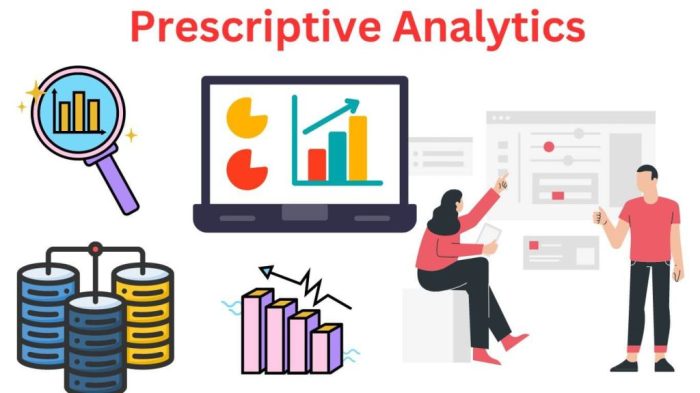
Diagnostic health checkups are crucial for maintaining overall well-being, providing insights into our health status and identifying potential issues before they escalate. Regular checkups can lead to early detection of conditions, which significantly improves treatment outcomes and enhances preventive healthcare.
Various types of diagnostic tests, from blood work to imaging and screenings, can offer valuable information tailored to individual risk factors and age. These assessments not only help in the prevention of diseases but also allow for personalized health plans, making them an integral part of a proactive healthcare approach.
Importance of Diagnostic Health Checkups
Regular diagnostic health checkups play a crucial role in maintaining overall health and well-being. These checkups serve as a proactive approach to health management, allowing individuals to monitor their health status and detect potential issues before they escalate. By committing to routine health screenings, one can adopt a preventive mindset that significantly impacts long-term health outcomes.Early detection of health issues is paramount; it can lead to better treatment outcomes and even save lives.
For instance, conditions such as cancer, diabetes, and heart disease, when detected early, can be managed effectively with timely interventions. Diagnostic health checkups are essential components of preventive healthcare, ensuring that individuals receive the necessary screenings and tests tailored to their age, gender, and risk factors.
Types of Diagnostic Health Checkups
There are various types of diagnostic checkups available, each designed to identify specific health conditions. These include:
- Blood Tests: Common tests like complete blood count (CBC) and lipid panels assess health indicators such as cholesterol and glucose levels.
- Imaging Studies: X-rays, MRIs, and CT scans provide detailed views of the body’s internal structures, helping diagnose conditions like fractures or tumors.
- Screenings: Mammograms and colonoscopies are vital for early detection of cancers. Regular screenings are often recommended based on age and family history.
Additionally, the frequency of these checkups varies. For example, adults in their 20s may require annual checkups, whereas those over 50 might need more frequent screenings for chronic diseases.
Home Health Care and Diagnostic Checkups

Home health care services have revolutionized the way diagnostic health checkups are delivered. By facilitating diagnostic tests in the comfort of one’s home, these services ensure greater convenience and accessibility for patients.Receiving diagnostic tests at home brings several benefits, including reduced stress and increased comfort. Patients can have their blood drawn or undergo certain screenings without the need to travel to a clinic, making the process more manageable for those with mobility issues or chronic conditions.Examples of services offered in home health care related to diagnostics include at-home blood draw services, telehealth consultations, and mobile imaging units that provide X-rays or ultrasounds directly to the patient’s residence.
The Role of Healthcare Alliance in Diagnostics
Healthcare alliances play an integral part in enhancing diagnostic health checkups. By fostering collaboration among various healthcare providers, these alliances ensure that patients receive comprehensive diagnostic services tailored to their unique health needs.Collaborative efforts within healthcare alliances can lead to improved access to diagnostic technologies and shared resources, ultimately benefiting patient outcomes. One notable success story involved a network of hospitals that streamlined their diagnostic processes, resulting in faster turnaround times for lab results and imaging studies.
Nutrition and Diagnostic Health
Nutrition is intricately linked to the outcomes of diagnostic health checkups. Adopting healthy food choices can significantly impact test results, often revealing underlying health issues before they manifest as serious conditions.To enhance diagnostic results, individuals can make dietary changes such as increasing fruit and vegetable intake, reducing processed foods, and opting for balanced meals rich in whole grains, lean proteins, and healthy fats.
Research indicates that good nutrition can prevent chronic diseases, including heart disease and diabetes, which are often highlighted through diagnostic testing.
Health Equity and Access to Diagnostic Services

Health equity directly affects access to diagnostic health checkups. Disparities exist in the availability and quality of diagnostic services among different populations, often influenced by socioeconomic factors, geographical location, and systemic issues within healthcare systems.Initiatives aimed at improving health equity, such as community health programs and outreach efforts, are essential for ensuring that all individuals have access to necessary diagnostic services, regardless of their background.
Health and Fitness in Relation to Diagnostics
Regular physical activity is known to positively influence diagnostic health outcomes. Engaging in consistent exercise not only promotes overall well-being but also can lead to better results in diagnostic tests related to cardiovascular health, blood pressure, and metabolic functions.Integrating fitness assessments into routine diagnostic checkups can provide valuable insights into a patient’s health status. Statistics show that individuals who maintain a regular fitness regimen are less likely to develop chronic diseases, emphasizing the importance of an active lifestyle in preventative healthcare.
Managing Health Anxiety During Checkups
Managing health anxiety is crucial when preparing for diagnostic checkups. Many individuals experience stress or fear surrounding health evaluations, which can impact their overall experience.To alleviate anxiety, patients can adopt strategies such as practicing relaxation techniques, preparing questions for their healthcare providers, and engaging in open communication about their concerns. Ensuring clear communication with healthcare professionals can significantly mitigate worries, leading to a more positive experience during checkups.
The Healthcare System and Diagnostic Health Checkups
Different healthcare systems approach diagnostic health checkups with varying methodologies, affecting overall access and efficiency. Understanding these approaches is essential for identifying best practices and areas for improvement.Challenges often faced include long wait times, limited resources, and disparities in service delivery across regions. Successful models from other countries, such as universal health coverage and integrated care systems, offer insights into enhancing diagnostic services and improving patient access.
Continuous Development in Health and Medical Education
Incorporating diagnostic health checkups into health and medical education is vital for fostering a new generation of healthcare professionals equipped with advanced diagnostic capabilities. Ongoing education ensures that healthcare providers remain updated on the latest diagnostic technologies and methodologies.Innovative training programs focused on enhancing diagnostic skills include hands-on workshops, simulation-based learning, and inter-professional education initiatives that promote teamwork among various healthcare disciplines.
Health Benefits of Regular Checkups
Regular diagnostic health checkups offer numerous health benefits, including the identification of potential health issues before they become severe. These checkups allow for the formulation of personalized health plans tailored to individual needs and risks.Statistics demonstrate that individuals who engage in regular diagnostics are more likely to maintain long-term health benefits, such as reduced morbidity and improved quality of life.
Role of Health Clinics in Diagnostic Services
Health clinics are pivotal in providing accessible diagnostic health checkups to communities. They often serve as the first point of contact for patients seeking preventive care and diagnostics.Services offered by health clinics include routine blood tests, vaccinations, and screenings for various conditions. Patient success stories from these clinics highlight the importance of timely diagnostics in preventing disease progression.
Integrating Dental Care into Health Checkups
Dental health significantly impacts overall health and should be integrated into routine diagnostic checkups. Dental assessments can reveal systemic diseases, such as diabetes and heart disease, that are often detected through oral examinations.Guidelines for incorporating dental assessments into health checkups include scheduling dental evaluations alongside general health screenings. The relationship between oral health and systemic diseases underscores the importance of a comprehensive approach to diagnostics.
Health and Safety Jobs in Diagnostics
Career opportunities in health and safety related to diagnostic services are increasingly vital. These roles ensure that diagnostic processes adhere to safety protocols, minimizing risks associated with testing.Health and safety professionals in diagnostics play critical roles in maintaining equipment standards, ensuring proper handling of samples, and safeguarding patient welfare throughout the diagnostic process.
Final Review
In summary, prioritizing diagnostic health checkups can pave the way for a healthier future, enabling individuals to take charge of their health proactively. By staying informed and participating in regular checkups, we can ensure that we address health concerns early, ultimately leading to improved well-being and quality of life.
FAQ
What are diagnostic health checkups?
Diagnostic health checkups are routine assessments designed to evaluate an individual’s health status and identify potential medical issues early on.
How often should I get a diagnostic health checkup?
The frequency of checkups varies based on age, health status, and risk factors; generally, annual checkups are recommended.
Can I get diagnostic tests done at home?
Yes, many home health care services offer diagnostic tests, providing convenience and comfort for patients.
What role does nutrition play in diagnostic health checkups?
Nutrition significantly impacts health outcomes, as a balanced diet can improve diagnostic results and help prevent chronic diseases.
How can I manage anxiety related to diagnostic checkups?
Preparing for your checkup, communicating with your healthcare provider, and practicing relaxation techniques can help manage anxiety.







